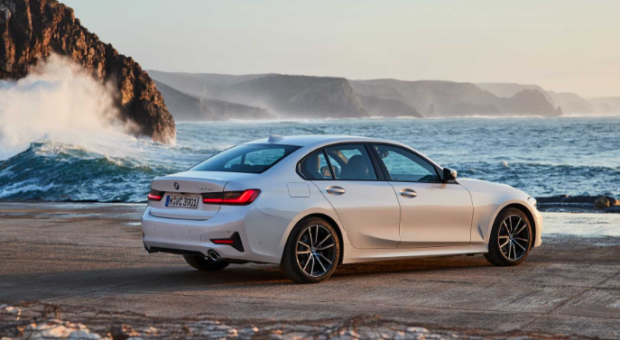
The luxury compact sedan segment is fiercely competitive, with two perennial contenders that consistently capture the hearts of automotive enthusiasts: the BMW 3 Series and Mercedes-Benz C-Class. These German powerhouses have been at the forefront of automotive excellence for generations. In this technical analysis, we’ll delve into the intricate details of the BMW 3 Series and Mercedes-Benz C-Class to determine which one offers the superior blend of engineering, technology, and performance.
Powertrains and Performance
BMW 3 Series: The 3 Series offers a range of potent engines, including turbocharged four-cylinders, a robust inline-six, and even a plug-in hybrid variant. The M3 and M340i deliver blistering acceleration and precise handling, earning their reputation as ultimate driving machines.
Mercedes-Benz C-Class: The C-Class also offers a variety of engines, including turbocharged four-cylinders and a robust V6. The Mercedes-AMG models, such as the C63, provide explosive power and dynamic handling.
Chassis and Suspension
BMW 3 Series: The 3 Series features a well-balanced chassis and suspension setup, with precise steering and excellent cornering capabilities. The adaptive M suspension ensures a comfortable ride without compromising sportiness.
Mercedes-Benz C-Class: The C-Class boasts a plush and comfortable ride, with a suspension that excels at soaking up road imperfections. It leans towards luxury while still offering engaging handling, especially in the AMG variants.
Interior Quality and Technology
BMW 3 Series: The 3 Series’ interior exudes quality with premium materials, comfortable seats, and a user-friendly infotainment system. The available Live Cockpit Professional adds a digital instrument cluster and advanced tech features.
Mercedes-Benz C-Class: The C-Class offers a refined and opulent cabin with top-notch materials. Its high-resolution infotainment screen, combined with the MBUX system in newer models, offers a state-of-the-art user experience.
Technology and Infotainment
BMW 3 Series: BMW’s iDrive system is intuitive and responsive, with a broad array of features. The 3 Series includes advanced driver-assistance technologies, making it a tech-savvy choice.
Mercedes-Benz C-Class: The C-Class features the MBUX infotainment system, known for its voice command functionality and impressive graphics. It also offers a suite of advanced driver-assistance features.
Safety Features
BMW 3 Series: The 3 Series includes a range of safety features, including adaptive cruise control, lane-keeping assist, and a comprehensive collision avoidance system.
Mercedes-Benz C-Class: The C-Class offers advanced safety technologies such as active brake assist, attention assist, and blind-spot monitoring.
Price and Trims
BMW 3 Series: The 3 Series comes in a variety of trims, with pricing that spans from the entry-level to the high-performance M models. It caters to a wide range of budgets and preferences.
Mercedes-Benz C-Class: The C-Class offers diverse trim levels as well, with competitive pricing that aligns with its luxury and performance.
Fuel Efficiency
BMW 3 Series: The 3 Series includes fuel-efficient options like the 330e plug-in hybrid, catering to those who prioritize eco-friendliness.
Mercedes-Benz C-Class: The C-Class offers fuel-efficient variants, particularly with the turbo-four engines.
Conclusion
The BMW 3 Series and Mercedes-Benz C-Class are both outstanding examples of German engineering and luxury in the compact sedan segment. The 3 Series excels in performance, handling, and advanced technology, earning its reputation as a driver’s car. The C-Class, on the other hand, focuses on luxurious comfort, opulent interiors, and advanced infotainment systems.
Your choice between these two iconic models ultimately depends on your preferences, whether you prioritize performance, interior quality, advanced tech, or a blend of these elements. Both the 3 Series and C-Class embody the best of German automotive engineering, ensuring that you’ll be driving in style and sophistication, no matter your decision
















